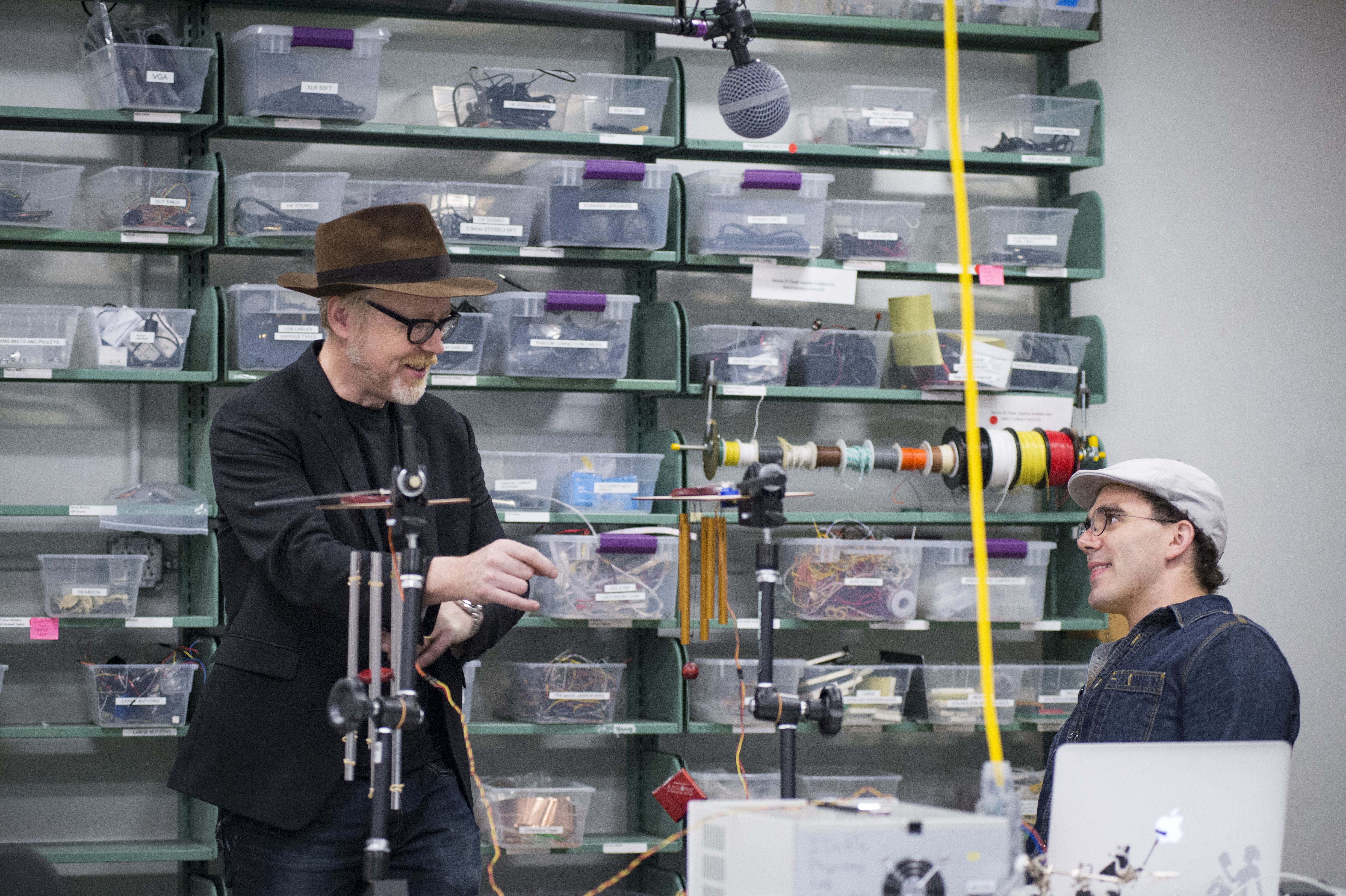Former "Mythbusters" Star Inspired by IDeATe Maker Spaces
This piece was originally featured on cmu.edu
Carnegie Mellon University's IDeATe Network will be featured in a web series hosted by former "MythBusters" star Adam Savage on Tested.com. The series runs through June 19.
Savage and a production crew interviewed students and faculty in the Integrative Design, Arts and Technology (IDeATe) Network last fall during a national tour focused on maker spaces and innovation in education, entrepreneurship and workforce development.
The Fab Foundation, an umbrella organization that emerged from the Massachusetts Institute of Technology's fab lab program that stewards more than 1,000 fabrication labs around the globe, partnered with Savage, now editor-in-chief of Tested.com, and Chevron for the tour to Pittsburgh, Austin, New Orleans, Boston, Detroit and the San Francisco Bay Area.
"CMU seems to clearly understand that properly preparing its students to enter a 21st century reality means training them in a wide array of approaches to problem solving." — Adam Savage
During his visit, Savage explored IDeATe's labs in the basement of Hunt Library. He met with students and faculty who introduced Savage to some of the program's maker courses, ongoing work and finished projects that combine innovation with technology.
"CMU seems to clearly understand that properly preparing its students to enter a 21st century reality means training them in a wide array of approaches to problem solving," Savage said. "By adding a minor in making and encouraging cross-campus collaboration, they whet students' appetite for looking outside the box for solutions and ideas. This is, to my mind, a terrific approach."
Keith Webster, CMU's dean of University Libraries and director of emerging and integrative media initiatives, told Savage that the program brings together students from nearly every discipline, who learn how others outside their field think.
"In the 21st century, our students are going to be dealing with big challenges, which no one can solve on their own," Webster said. "We need to find a way in which students can gain those experiences of learning to work with other people and what each other brings to the problem."
Since launching in the fall of 2014, the IDeATe program has been learning from its students and is constantly evolving, he said.
"We're also learning about the importance of engaging with companies from outside the university who give our students real-world problems to work on," Webster said. "We've got some returning veterans who need particular adaptations in their home environment. [They] help us build the solution over the course of a semester, and watching our students react to those problems and give so much back to the community is a tremendously fulfilling part of this whole process."
Savage said his introduction to IDeATe was "very inspiring."
Sonya Pryor-Jones, chief implementation officer for The Fab Foundation, said CMU's IDeATe was among a variety of maker spaces and fab labs they visited. Some of the other locations during the two-day trip included the Elizabeth Forward School District, Carnegie Science Center, the Children's Museum Pittsburgh and the University of Pittsburgh.
"The role anchor universities play is essential to the livelihood of communities. So, it was great to include CMU in our Pittsburgh visit and to see what university students and faculty were doing," Pryor-Jones said. "With the emergence of project-based learning in K-12, it was great to see the interdisciplinary approach at the university level."
Pryor-Jones said students in higher education are seeking this kind of hands-on learning experience.
"These spaces are wonderful platforms for innovation and creativity, and put student learners of all ages in the driver's seat," she said, "building the kind of core skills and self-efficacy necessary for our future workforce."
